This captivating interview explores society’s detachment towards animals and the cost of selectively severing our empathy. Philosopher John Sanbonmatsu draws thought-provoking parallels between our treatment of animals and psychopathy, highlighting the transformative power of reconnecting with empathy.
In this thought-provoking interview, we delve into the profound detachment society exhibits toward the animals we consume and the cost of selectively severing our empathy. Philosopher John Sanbonmatsu draws parallels between our treatment of other animals and the characteristics of psychopathy while highlighting our capacity to change.
Topics explored include:
- The naturalization and normalization of violence against other animals
- The ethics of killing animals yourself (the locavore movement)
- The psychologically healthy source of willful ignorance
- How our culture influences our selective empathy
- How we perceive systemic violence vs aberrant sadistic individuals
- A moving account of one farmer’s monumental shift in perspective
- Our capacity to change how we relate to animals by re-connecting with our empathy
- and more…
Watch the video above to hear directly from John. The transcript of our interview is below.
Most people are simultaneously animal lovers and animal eaters. They don’t want to harm animals or see them harmed, but they also continue to eat meat, leading to what scientists have dubbed “the meat paradox.”1
Studies2 have found that people navigate the resulting discomfort of this cognitive dissonance with a number of coping strategies, including dissociation, detachment, and “othering” of non-human animals. Essentially, a selective severing of their empathy.
In this interview with philosopher and author John Sanbonmatsu, we explore how this societal detachment can mirror psychopathy, an argument John makes in his forthcoming book The Omnivore’s Deception: What We Get Wrong about Meat, Animals, and the Nature of Moral Life.
Introducing John Sanbonmatsu
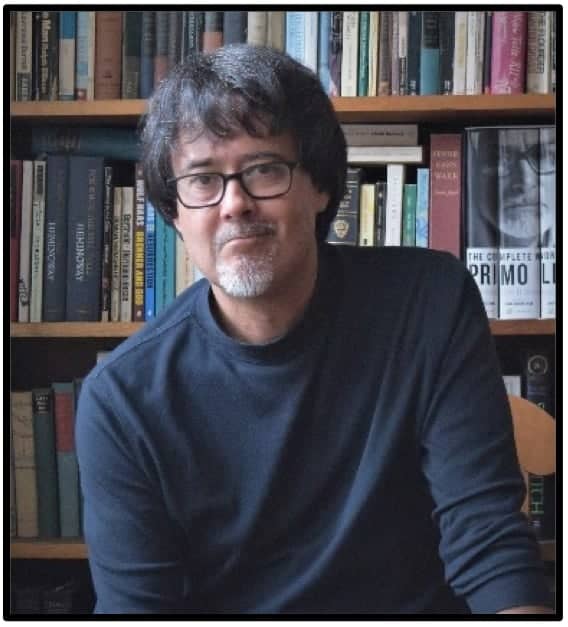
A scholar in the interdisciplinary field of Critical Animal Studies, John Sanbonmatsu teaches ethics and philosophy at the Worcester Polytechnic Institute in Massachusetts.
John is the editor of the award-winning book Critical Theory and Animal Liberation and is the author of The Postmodern Prince: Critical Theory, Left Strategy, and the Making of a New Political Subject.
His forthcoming book The Omnivore’s Deception: What We Get Wrong about Meat, Animals, and the Nature of Moral Life reframes the question of animal agriculture from one of “sustainability” to one of existential and moral purpose, presenting the most powerful case yet for the total abolition of the animal economy
John’s writing has appeared in the Christian Science Monitor, New York Times, Detroit Free Press, St. Louis Post-Dispatch, and the Huffington Post, among others.
You can connect with John at his website and on Twitter.
Interview with John Sanbonmatsu
The following transcript of my interview with John Sanbonmatsu (from the video above) is edited for clarity. I’ve also employed subheadings to provide navigational markers of topical and thematic divisions beyond a pure question/answer grouping.
John’s Use of the Terms “Psychopathy” & “Sociopathy” & the Concept of Societal Psychopathy
Emily: “Psychopath” and “sociopath” are very loaded terms. We tend to see psychopathy— especially in regard to harming animals—as a rare, aberrant, and sadistic.
However, you suggest that on a societal level, we exhibit sociopathic and psychopathic attitudes and behaviors toward other animals. Could you explain your argument on the ubiquity of psychopathy?
John: I’m using these, as you said, “loaded” terms in mostly…as a kind of metaphor, but also [as] something more than a metaphor to describe the way that we as a society and as human beings treat the other beings of the Earth.
We grow up in a society that acculturates us to suppress our empathetic response. And that naturalizes and normalizes violence and aggression against other animals. It’s what happens when we see other persons as things. That almost dissociation, a kind of inability to access the interior experiences of the other, is characteristic of anti-social personality disorders.
The term “sociopathy” and the term “psychopathy” are not in the DSM (Diagnostic and Statistical Manual of Mental Disorders). They’re not formal clinical diagnoses, so they tend to be used a little bit more informally.
We grow up in a society that acculturates us to suppress our empathetic response. And that naturalizes and normalizes violence and aggression against other animals.
tweet this— John Sanbonmatsu
Without going into too many details about this, we can say that people with sociopathy and people with psychopathy express a kind of diminished empathetic response. And most people in society exhibit these qualities: they’re selective in their empathy. They have empathy for this animal or this group of animals, but not these animals. And the [animals] that fall off the radar of their empathetic concern are the ones who, coincidentally, we exploit and want to keep on exploiting.
So…I’m using “psychopathy” as…something between a metaphor and an actual description of our behavior and our psychology. Not everybody wants to hurt animals. Most people don’t want to see other animals harmed. And yet, at an unconscious level they’re participating—we’re participating—in a system of violence, and we know that.
If you think about the levels of extreme violence and the extensiveness of the violence in human civilization…human civilization is based on the equivalent of genocide—on mass killing of literally up to one to three trillion marine animals every year and maybe sixty billion mammals and avians and other animals, reptiles, amphibians, on land.
That’s every year. And not only is it considered normal, not only is it considered ethical—it’s actually seen as the best way to live a human life! And if anybody has the temerity to say, “Excuse me, maybe we shouldn’t do this,” then everyone jumps on them, ridicules them, and hates on them.
As someone who used to eat meat, you know, I wouldn’t have thought of any of that, but the truth is, if we really get down to it, you know, we should be disturbed by our participation, because it does show a moral callousness that is very similar to psychopathy.
That’s kind of how I’m using these terms. I’m really interested in how society structures our experiences through language and power relations so that we act as though we had psychopathy—as though we were afflicted with this towards other animals.
Is It More Ethical to Kill Animals Yourself than Buy Meat?
Emily: Activists often emphasize that our unwillingness to confront the reality of what other animals experience in the animal products industries creates a fundamental barrier to understanding the true nature of our complicity as consumers. The assumption is that if consumers had to kill animals themselves, they’d stop eating animals.
However, you discuss a growing “do it yourself” culture of people who do kill and butcher animals on their own, and the social perception of this being a more virtuous, authentic, and honest relationship to animals and food. Would you discuss the comparative ethics of killing animals oneself versus the detached denial state most consumers inhabit?
John: There’s been this “meat renaissance”…around this idea of “authenticity” and developing a direct relationship with nature or animals. And the way to do that…in the “locavore movement” is to kill and butcher the animal yourself.
When we go into the supermarket and just buy a commodity without thinking…you could say there’s a kind of hypocrisy in that because we don’t want to know.
We have a moral failing insofar as we just hide certain ugly truths from ourselves. But the very fact that we find such truths ugly is healthy.
tweet this— John Sanbonmatsu
As you said, there’s a kind of ethos around this, such that the person who…kills chickens themselves, butchers their own hog, or hunts their own meal is engaging in a more “authentic” and more morally sound practice.
The thing is, the ideology of meat and the ideology of human supremacy…it’s just so powerful. That’s why people are able to kill animals with their own hands—because they already see them as beneath our contempt and as having lives that are worthless.
These are ideas that are prevalent in society: the idea that animals just don’t matter, their lives don’t matter.
In my view, people who deliberately seek out opportunities to harm animals, to kill animals, to control, dominate, and kill animals—have far less moral character than people who just unthinkingly, unwittingly buy their food at the supermarket.
The Psychological Health of Hypocrisy (Not Wanting to See Others Harmed)
John (continued): When we go into the supermarket and just buy a commodity without thinking about where it comes from or what went into its production, you could say there’s…a kind of hypocrisy in that because we don’t want to know… On the other hand, I think there’s something psychically healthy about a kind of instinctual desire to avoid—not to want to see other beings being harmed.
The argument of the “do-it-yourself” slaughterers is that that’s a more morally virtuous behavior to actually see it: you go to a slaughterhouse workshop, you see someone else kill the animal, or you get to do it.
I think it’s very healthy on the contrary to not want to do that, to not want to see that. So it’s a little psychically or psychologically complicated because, as they say, we have a moral failing insofar as we just hide certain ugly truths from ourselves. But the very fact that we find such truths ugly is healthy.
Emily: I think that is something that is, not purposefully, but sometimes perpetuated by animal activists. [We can] focus so much on the hypocrisy, the avoidance, and the denial… [Those] are there and it is important [for people] to recognize what’s being done in our names…
But, as you’re saying, it’s also good to recognize that that denial and that hypocrisy [are] coming from a healthy avoidance within us. And that is actually a huge indicator that we know this [killing animals] is not an okay thing to be doing, and it’s not something that we are okay with.
John: Absolutely. When I show my students footage of animals being harmed, everybody is upset. Everyone is very upset and some of the students cry every time I show it. And these are all meat eaters. These are all people who, before they came into my classroom, would have just kind of laughed at it—at veganism—and made vegan jokes and thought the whole thing was ridiculous and silly.
But when they see it with their own eyes, and when they feel it with their own mammalian senses—because we are mammals and we have evolved this capacity for empathy—it changes their way of understanding the meat system and their relationship to it.
Unfortunately, there are just so many forces and pressures working as disincentives to changing behavior that very few of them then become vegetarian or vegan. But every single one of them understands after seeing the stuff that it’s wrong. No one ever, almost no one in my experience, will say, “Well this is okay.”
We Have Every Incentive Not to Look & Every Disincentive to Get Others to Look
Emily: I think that fact that they have that connection—that I think the vast majority of people do when they see this happening—but then they don’t change their behavior or their actions,…that really speaks to the “systemic psychopathy” in relation to other animals.
It’s not that each of us is a psychopath, but the fact that we can watch footage like that and make that empathetic connection, but then go right back to consuming those animals because it is reinforced systemically by a “societal psychopathy” when it comes to how we’re relating to these other animals…it’s very powerful.
It’s particularly damaging in a context in which it’s normalized—it’s seen as healthy to hurt animals—and in which people demonize and vilify anyone who tries to turn their gaze to look at the object of oppression.
— John Sanbonmatsu
John: It’s so much easier for us to turn the other way and not look, not see what’s there. We have every incentive not to look. We have every disincentive to look. And we have every disincentive to try to get others to look.
There’s that joke about…”Well how do you know when there’s a vegan in the room? Because they’ll tell you.” Why do vegans feel the need to tell? They want to take others and turn their heads…to this and say, “See?” And people don’t want to see.
And it’s particularly damaging in a context in which it’s normalized—it’s seen as healthy to hurt animals and in which people demonize and vilify anyone who tries to turn their gaze to look at the object of oppression.
How Culture Shapes Our Selective Empathetic Responses
Emily: I wanted to circle back briefly to the very first question where we were talking about the ubiquity of psychopathy—the societal psychopathy. I don’t know if we ever really talked about that essentially being down to a separation of our empathy.
I think we’re able to recognize the societal psychopathy when we’re looking at cultures outside of ourselves. Americans, for sure, can look at whale hunting or dolphin hunting or killing and eating dogs and that’s where we can [say], “Oh my gosh, this is psychopathic behavior.”
It’s that selective application of empathy and the selectivity that we have of what we see or don’t see, and what we connect to or don’t connect to, based on what we’ve been conditioned into within our own societies. But we’re able to see it in what other people are doing but not in the very same things that we’re doing, just to maybe a different species or these different applications.
John: Absolutely. And this is where racism, speciesism, misogyny, and other ways of viewing the world can get in the way of even…that direct apprehension of the suffering of the other, or the distress, the vulnerability of the other.
When empathy is either suppressed or absent, you have the potential for limitless violence. You have the potential for enormous harms.
— John Sanbonmatsu
Empathy makes it possible for me to perceive a situation requiring moral remedy. It’s a way of seeing what’s there. If I don’t have that empathy, that response, then I’m not going to see that there’s a morally relevant situation requiring remedy.
I’ve seen interviews with people with psychopathy when they’re confronted with the suffering of a human—it could be a human that they’re killing or a non-human animal they just happen to see drowning in their swimming pool—[and they exhibit] nothing. They don’t feel…they don’t feel anything.
If we can’t feel our way into the feelings of others, then we are really kind of messed up… When empathy is either suppressed or absent, you have the potential for limitless violence. You have the potential for enormous harms.
The Pleasure of the Perpetrator vs Systemic Violence (Bestiality and The Nazi Problem)
Emily: I have a video and article where I take on the taboo topic of bestiality. I argue that, much like you have with psychopathy, bestiality is not only commonplace, but actually paid for and supported by the vast majority of humanity.
When we look at the practices within the animal products industries, many on their face are the same sexually violating acts we’d classify as bestiality. The only difference is the perceived pleasure of the human perpetrator. That seems to be where our disgust lies.
Similarly, when we look at violence against non-human animals, we’re more than comfortable classifying it as psychopathic when the human perpetrator takes pleasure in the infliction of harm. Yet, we’re reticent to view systemic violence against animals as psychopathic—or even problematic. Could you speak to this distinction we make and what it is we actually find objectionable if it’s not the act itself?
John: That’s a great question and I think it’s a little complex. I’m thinking back to the Nazi experience and the fact that the Nazis…in some of their internal communications…talked about…different methods for killing Jews. And they would, in some cases, refer to “more or less humane methods.”
This is the thing that really bothers me about a film like Schindler’s List, where the Nazi commandant is portrayed as a sadistic lunatic. If only that had been the Nazi problem!
— John Sanbonmatsu
But the Nazi problem is that it was ordinary people. It was ordinary people who engaged in extraordinary forms of atrocity.
It was kind of taken for granted within the SS that you weren’t supposed to “get off” on it…that you were “just doing your job” and you’re going to be professional about it and so forth. In fact, of course, many in the SS were very sadistic and engaged in horrific, horrific, intentional cruelties…but the point I guess I’m trying to make is the apparatus.
At the Wannsee Conference, once the logistical details of the Holocaust had been arranged and the policy had been handed down for execution, all of the qualities of suffering and unspeakable suffering of the victims of the Nazis followed from the decision to kill.
This is the thing that really bothers me about a film like Schindler’s List, where the Nazi commandant in the film is portrayed as…a sadistic lunatic. If only that had been the Nazi problem! But the Nazi problem is that it was ordinary people. It was ordinary people who engaged in extraordinary forms of atrocity.
The human character is such that it’s very easy for us to be part of a bureaucracy or a process, a normalized routine and practice where we engage in really horrible forms of behaviors but as you point out where because they’re not intelligible within the frame of individual agency or individual effect…like whether I’m getting pleasure from this or not…we have a harder time seeing that systemic violence as just as bad.
The most horrible things become acceptable the moment they become normal.
tweet this— John Sanbonmatsu
Emily: I think also there’s the fact that what we label as sadistic and psychopathic doesn’t have the sheen of being “necessary,” which is what we can apply to killing and eating animals. It’s this concept that “Well, but it’s necessary, because how else are you going to feed the world?” And I think that can also provide this distinction in our minds.
John: Again, the curious compartmentalizing feature of our minds is that the most horrible things become acceptable the moment they become normal—taken for normal.
Psychopathy vs Psychopathic Behavior & Our Capacity to Change
Emily: It’s well known that most serial killers torture and kill non-human animals in their youth before moving on to humans. However, not all children who torture animals become serial killers. You actually share a story from your youth of how you tormented ants. Could you speak to the distinction between psychopaths versus psychopathic behavior? And what this means for our ability to change our behavior in relation to other animals?
John: Yes, when I was a boy, I’m very sorry to say, I killed a lot of different insects. I tortured ants—killed them in the hundreds. And in reflecting on why, I mean…I don’t want to get too much in my own personal psychology per se, but I mean it really was a kind of displaced aggression.
We can behave in these ways that really do resemble psychopathy: lack of empathy, lack of remorse, lack of guilt, extreme cruelty even—[but] that isn’t hardwired into us. Most of us can change.
— John Sanbonmatsu
It’s clear that there’s a potential for unlearning these behaviors.
So, I guess, in reflecting on this part of my own personality—I would say that my behavior towards the ants was…it was both psychopathic, and I’d go further and say that it was also sadistic. I mean, I actually took an active pleasure, I’m very sorry to say (because now I don’t kill any insects), but I took pleasure in harming them.
It’s disturbing to think about, but it does give me a kind of insight into the psychology, I think. But in my case—in the case of many people—young people might engage in these kinds of behaviors. It’s very clear…you can connect the dots to see how I got there, through cultural influences, familial influences, my own psychology…
But now, if there’s an animal trapped, a little insect or something trapped in my home, I’ll just take the insect outside. So, it shows that we can change. We can behave in these ways that really do resemble psychopathy: lack of empathy, lack of remorse, lack of guilt, extreme cruelty even—and that isn’t hardwired into us (most of us). Most of us can change. It’s clear that there’s a potential for unlearning these behaviors.
The Moving Story of Harold Brown
John (continued): A very moving example of someone who had the shift, this change in consciousness, is Harold Brown. Harold Brown was brought up on a farm in Iowa. Later he became a dairy farmer himself. He felt a connection to the animals at some level, but he also butchered them and or sent them to slaughter for years.
Then, he had a heart attack. It created a kind of hiatus…it was like a break in the way he’d gone about living his life. And he began to rethink his relationship to all these animals that he had been raising for slaughter for years. And with that distance and that break, he developed a sensitivity to animal ethics and became a vegan.
And from that point on, Harold realized that he had a “compassion switch”—we might call it an “empathy switch”—and that he’d been able to turn it on or off his whole life.
— John relaying the story of former dairy farmer Harold Brown
So he’d been able to have empathy for people…and for certain kinds of animals—maybe his dog—but then he could turn off that switch in order to butcher animals.
Well, sometime after this, he adopted a young male cow at an animal sanctuary. The cow’s name was Snickers, and he had visited Snickers once or twice, I think, and then he went away for six months or so and then came back.
And he was curious to know if Snickers would recognize him. So kind of almost half-jokingly, Harold opened his arms and said “Hi, Snickers!” And the cow immediately ran to him and put his head up against Harold’s chest—gently but firmly put his head against Harold’s heart…and Harold burst into tears.
And he realized in that moment [that] all of these years of acculturation as a boy and a man, he’d been taught—like practically every boy in every culture—to suppress his feelings, to be tough…especially in a rural working-class white community.
And that just kind of melted away. And from that point on, he realized, as he describes it, that he had a “compassion switch”—we might call it an “empathy switch”—and that he’d been able to turn it on or off his whole life. So that he had been able to have empathy for people…and for certain kinds of animals maybe—maybe his dog—but then he could turn off that switch in order to butcher animals.
And when he had that epiphany, it was just mind-blowing to him. And he tells the story because what he felt in that moment with Snickers was this moment of connection—of relationality. It was just being present with this other.
And that is what is so sad, I mean tragic—is the fact that all these people like Michael Pollan and Barbara Kingsolver…all these people are killing animals in the name of “authenticity.” They’re missing out. They’re doing something that’s wrong, evil, but they’re also missing out on a more spiritually elevated way of being human—which is to be in a connection with love, with others, and with all of these wonderful creatures that we live alongside of.
And if you go through life treating all of these beings as “its,” as just objects, you’re missing out on this kind of huge dimension of being human…and animal.
How We Reconnect With Our Empathy
Emily: You propose, and as we saw with Harold Brown, that we aren’t lost causes when it comes to reconnecting with our empathy and altering our relationship to other animals. Could you speak to how we may as a society and individuals, make that shift?
John: It can’t just be at the individual level. There has to be a movement that’s challenging the structure of violence and the ideas that go into the making of it…challenging the meat industry’s propaganda to create an opening where people could get in touch with their empathic selves.
If you go through life treating all of these beings as “its,” as just objects, you’re missing out on this huge dimension of being human.
tweet this— John Sanbonmatsu
Part of that is educating people about what animals are and who they are because we see them as just these degraded, stupid, irrational beings—which they’re not. And then part of it is learning to think about a new kind of civilizational order where we are actually glad to have other beings we’re sharing the Earth with.
So that we stop burning rainforests and enslaving animals and putting them in zoos and circuses…that’s the whole broader picture…
But the takeaway is that it’s clear that we can change, and that while we may have these behaviors that are in some way like that of someone with psychopathy, we can unlearn them.
In Closing…
I hope you enjoyed hearing from John on this thought-provoking and complex topic. I’d love to hear your thoughts in the comments. You can connect with John at his website and on Twitter.
To stay in the loop about new Bite Size Vegan content and updates, please sign up for the newsletter or follow the Telegram channel for the most reliable notifications.
To support educational content like this, please consider making a donation. Now go live vegan, and I’ll see you soon.
— Emily Moran Barwick


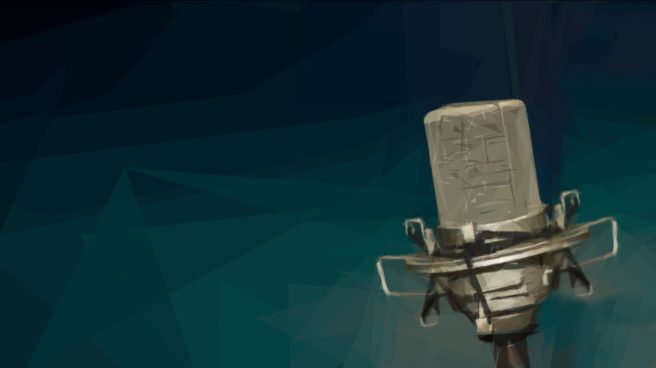

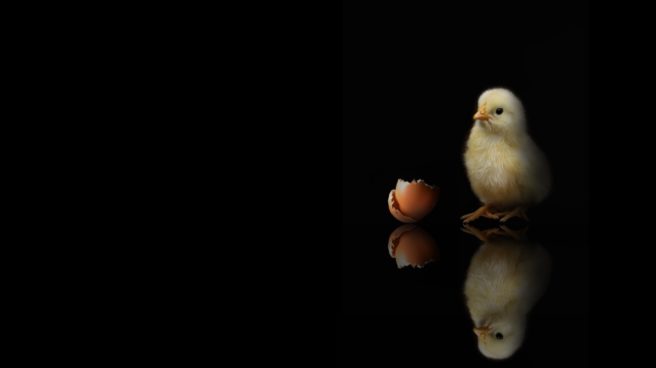
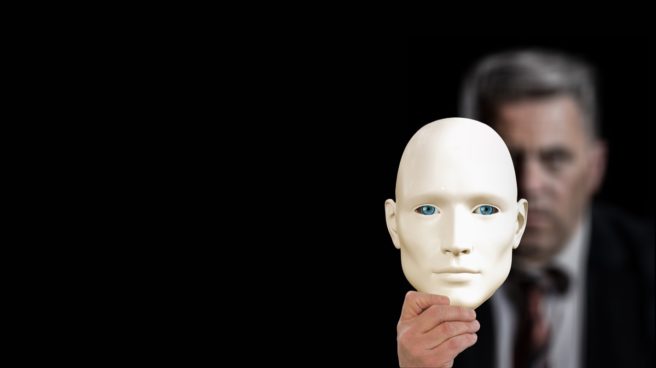
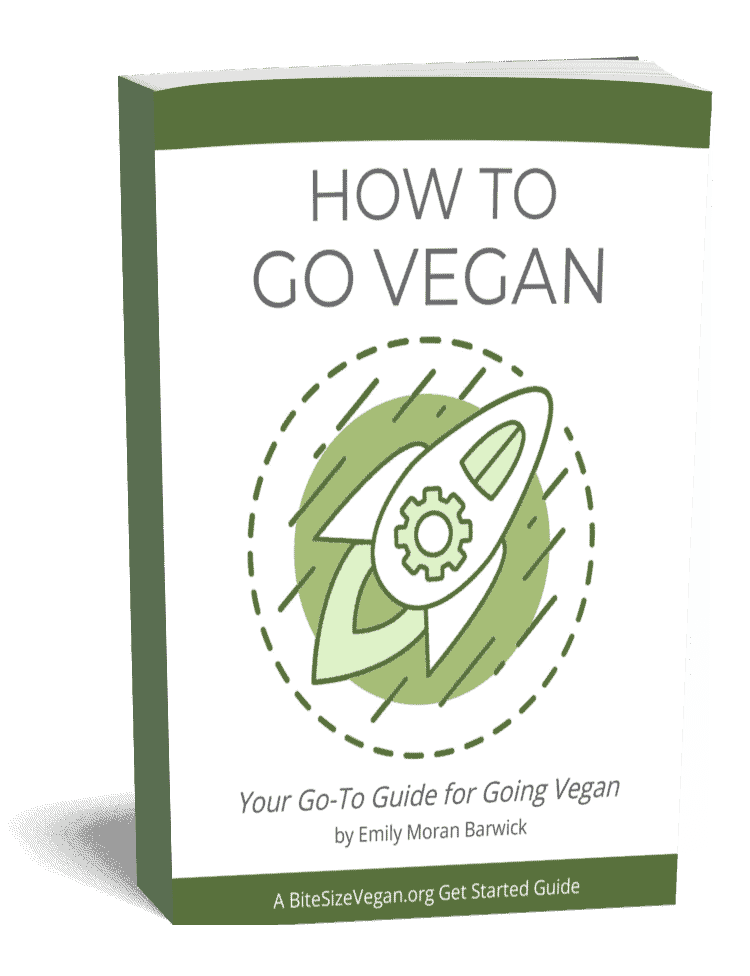
Emily, what a fascinating interview! Thank you for sharing this with us. I found so much of what John discussed to be quite thought-provoking indeed (as promised) :) I think one of the concepts I most appreciated (and had never quite thought of in that way) was the idea of the “willful ignorance”/hypocrisy of meat-eaters being a sign of a HEALTHY psyche. That really does re-frame things, and (I think) allow vegans/activists to view their “denial” from a place of not only understanding, but compassion and even hope, given it’s an indicator of their core values being “alive and well” inside. I’m going to have to give this another listen and read-through as there’s much to digest! Thank you again for your dedication and for always providing such stimulating content!
Anesh, I’m so glad to hear that you found the interview to be fascinating! I really enjoyed our discussion and feel that John introduces and speaks to many important themes. The one you’ve highlighted is also one of my favorites. I also found it so important how John highlighted our capacity to change. At first blush, comparing meat-eating (or more so our relationship to animals) to the characteristics of psychopathy, one may assume it to be aggressively anti-non-vegan. But it’s quite the opposite! I think this conception of our societal disconnect, and the compensatory behavior we humans engage in to make it “okay” to consume animals are all indicators of our existing and in-tact values. Quite a lot to explore. Again, thrilled you enjoyed it, and thank you for taking the time to comment!
I was going to comment similarly!
It struck me when John noted that not wanting to look was not only normal but more healthy than raising and killing one’s own animals or hunting.
I hadn’t thought of it that way before, and have always been stumped by the solemn hushed tones of people claiming to “respect” an animal’s life in these ways. (Spare me such respect, please!)
Thank you, again, Emily – this interview with John was fantastic!
So glad to hear this! That was one of my very favorite points as well, as I said to Anesh. I always think it’s so important to recognize the signs in people of those core values that are in line with veganism already. Never to excuse the actions, but to better communicate/reach/interface with people. To help them connect to the values they already have. I’m so thrilled that you enjoyed the interview and appreciate you taking the time to reply
Such a beautiful discussion! Thank you Emily for introducing me to John Sanbonmatsu and Harold Brown.
Love to you!
Pony
Thank you so much for taking the time to comment, Pony! I’m so glad to hear that you enjoyed the interview, and honored to have introduced John and Harold.
When I watch to old movie, Separate But Equal, I truly long for the animal rights version of Thurgood Marshall, an attorney or law firm with the gutsy brilliance and drive to get all us tax paying activists, ethical vegans, to sign onto a class action against the US government for their crimes against animals and the citizens who are sickened that our tax dollars go to the diet of death!
The famous doll experiment used by civil rights psychologists, Kenneth and Maime Clark, showed Judges that black children were being harmed, and felt inferior, to white people which led to the overturning of the laws that made it legal to segregate.
We need those same laws changed, that reduce animals to property instead of “persons” so humanity can EVOLVE past the speciesism, and anthropocentrism, that are now and forever manifesting in hideous cruelties to animals while at the same time, perpetuating a numbing lack of empathy that then unleashes violence to humans seen in every cell of modernity. We can’t live with such a profoundly duplicitous ethic that allows horrors inflicted on animals, while as a society, we abhor cruelty to animals and see it as a threat to the safety and health of that society!
We must acknowledge that any society seeking safety and health, must elevate nonhumans to equal protection under its law, or we argue that society IS a threat to itself.
It cannot be legal under any law, the people fund a system that disregards their health, their children’s health, and the health of the life-giving planet, to profit from what is resulting in disease and degeneration.
Thank you for sharing your thoughts on these themes, Laura. There most definitely must be change beyond the individual level, as John highlights. There’s a need for veganism/animal rights to be a social justice movement for systemic change. Really appreciate you taking the time to comment!
For a few years after I was divorced, I had so many arguments with my ex and his new wife because I was vegetarian and was raising my kids that way. The new wife is now vegetarian, and I have been vegan for 6 years. I am sending my ex the link to this conversation. I have always been able to communicate with other animals and thought everyone had this ability/empathy, but they don’t.
Emily,
This was so wonderful and thought provoking. I was not familiar with John Sanbonmatsu but as an avid reader I will be reading his material.
Humans distance themselves from what they are eating by calling it a hotdog, hamburger, or juicy steak instead of calling it what it is, dead and decaying animal flesh. This would kill a lot of appetites.
There’s a schizoid quality to our relationship with animals, in which sentiment and brutality exist side by side. Half the dogs in America will receive Christmas presents this year, yet few of us pause to consider the miserable life of the pig — an animal easily as intelligent as a dog — that becomes the Christmas ham. -Michael Pollan, professor and writer (b. 6 Feb 1955)
Sally, I’m so thrilled to hear you found this thought-provoking. And I hope you enjoy John’s work! It’s interesting that you quoted Michael Pollan—John’s forthcoming book “The Omnivore’s Deception” is actually a critical deconstruction of Pollan’s “The Omnivore’s Dilemma.” Pollan is one who does actually glamorize “killing your own animals.” Always so disconcerting with the “authenticity” and “honesty” arguments, which I’d never really been aware of until speaking with John and reading his work. (Was also not aware of Pollan’s writings on such things). As always, thank you so much for taking the time to share such a thoughtful comment!
Thank you for your effort, please take care!
I’ve had this article open in a tab on my browser for a few days, as I slowly read my way through it. Yesterday I went to a vegan event in VT and there was a magician named John there. Great show, and he chose me for a mentalist part of his act, and it blew my mind (although I think I know how he did this trick, but not how he did so many others!) Turns out, this is the same John interviewed here. What are the odds that I would be reading this and then serendipitously meet him in person in another role. Thanks for the article, and the magic show!
BJ, wow what a lovely happenstance :) Yes, John was telling me he had a show coming up. I’m so thrilled you enjoyed it. He’s a man of many talents!
Thank You Emily. That was great.
You’re so very welcome, Juli!